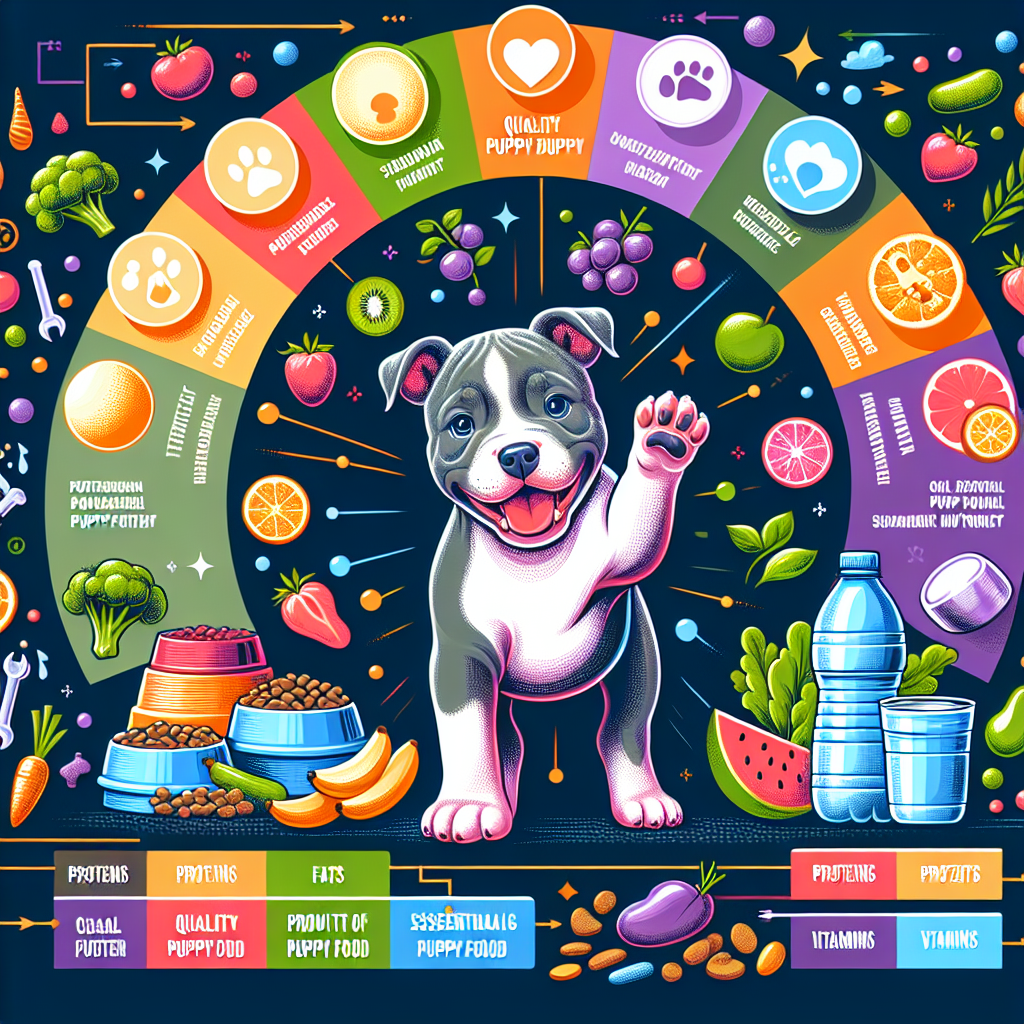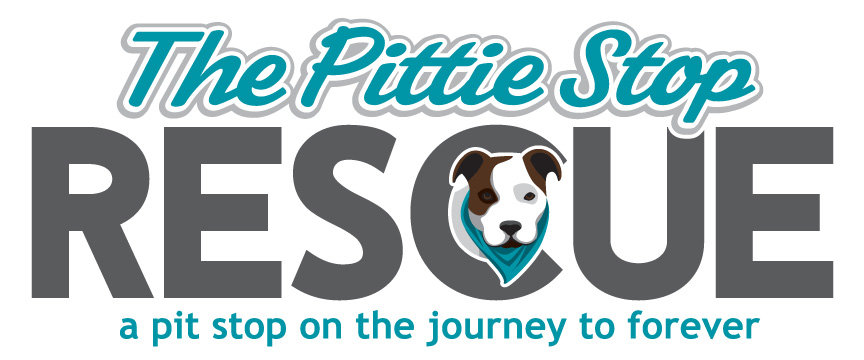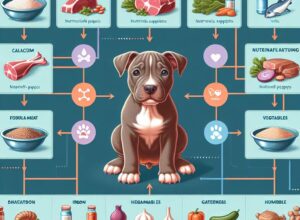
When it comes to the health of your Pitbull puppy, nutrition is a cornerstone. It’s not just about feeding them; it’s about feeding them right. As a Pitbull owner, you want to ensure that your furry friend grows up strong and healthy. So, the question arises: Can you give your Pitbull puppy human vitamins to boost their nutrition? Let’s unpack this and get to the heart of proper puppy nutrition.
Key Information on Pitbull Puppy Nutrition
-
A balanced diet is crucial for your Pitbull puppy’s growth and development.
-
Puppies have different nutritional needs than adult dogs, including higher protein and calorie requirements.
-
Quality commercial puppy food usually provides the necessary nutrients for a growing Pitbull.
-
Supplements can be beneficial in certain situations, but they should be used cautiously.
-
Always consult with a veterinarian before adding any vitamins or supplements to your puppy’s diet.
Understanding Your Pitbull Puppy’s Dietary Needs
Your Pitbull puppy is a bundle of energy, growth, and curiosity. To support their development, they need a diet rich in proteins, fats, carbohydrates, vitamins, and minerals. While adult dogs can often get by with a well-balanced commercial diet, puppies need more of these nutrients to help their bones, muscles, and organs develop properly. It’s important to feed them puppy-specific food that’s formulated to meet these higher demands.
Now, you might wonder if your puppy can benefit from the same vitamins you take. But here’s the thing: dogs process nutrients differently than humans do. What’s good for us isn’t necessarily good for them. For example, too much calcium can lead to bone problems in puppies, especially in large breeds like Pitbulls. So, stick to puppy-formulated food and follow the feeding guide on the package to keep your little one on track.
Human Vitamins vs. Canine Vitamins: What’s the Difference?
Human vitamins and canine vitamins are formulated differently because our bodies have different needs. For instance, dogs produce their own vitamin C, so they don’t need it in their diet the way humans do. Human vitamins may also contain artificial sweeteners, like xylitol, which is toxic to dogs. It’s essential to understand that giving your Pitbull puppy human vitamins can do more harm than good.
Canine-specific vitamins are designed with your dog’s health in mind. They have the right balance of nutrients that dogs need, and nothing they don’t. If your vet recommends a supplement, they’ll point you towards a product that’s safe and beneficial for your puppy. Remember, a well-balanced diet is usually enough to meet all of your Pitbull puppy’s nutritional needs.
Navigating the World of Supplements for Your Pitbull Puppy
Supplements can be a contentious topic among pet owners. While some swear by them, others argue they’re unnecessary if your dog is on a balanced diet. The truth lies somewhere in the middle. Supplements can be beneficial in certain cases, such as for puppies with health issues or those not thriving on their current diet. However, they should never be a substitute for a nutritious meal.
Before you even consider supplements, make sure your puppy’s daily diet is up to par. Look for high-quality puppy food that lists real meat as the first ingredient. Check for the AAFCO (Association of American Feed Control Officials) statement on the packaging to ensure it’s complete and balanced for your puppy’s life stage. This is your first line of defense in promoting a healthy life for your Pitbull pup.
Always keep in mind that less is often more when it comes to supplements. Over-supplementing can lead to toxicity and other health issues. It’s not about adding more vitamins into their diet; it’s about filling gaps that might exist due to specific health concerns. And that’s something only a vet can determine.
Identifying When Supplements Are Needed
So, when might your Pitbull puppy need a supplement? It’s not always straightforward. A healthy puppy on a balanced diet typically won’t need extra vitamins. However, there are exceptions. If your puppy has a health condition that affects their ability to absorb nutrients, or if they’re on a homemade diet, supplements might be necessary.
Here are some signs that your puppy could benefit from supplements:
-
Poor growth or weight gain despite a good appetite
-
Dull, flaky skin or a lackluster coat
-
Joint issues, especially in larger breeds prone to hip dysplasia
-
Chronic digestive problems
-
Other specific health concerns diagnosed by a vet
Remember, always consult with your veterinarian before starting any supplement. They can help you understand if your puppy needs a boost and, if so, which supplements are safe and appropriate for their unique needs.
Vitamins to Support Growth and Immune Health
As your Pitbull puppy grows, they need the right building blocks to support their developing body and immune system. Vitamins such as A, D, E, and K, along with B-complex vitamins, play critical roles in bone growth, cell function, and disease resistance. For instance, vitamin D is essential for calcium absorption, crucial for strong bones. Meanwhile, B vitamins are important for energy metabolism and brain health.
While a balanced puppy diet should provide these vitamins, there are times when your vet might recommend a boost. This could be due to a diagnosed deficiency or a condition that affects nutrient absorption. If supplements are advised, they’ll likely be in a form that’s safe and specifically balanced for puppies.
The Risks of Sharing Human Vitamins with Your Puppy
Sharing might be caring, but not when it comes to vitamins. Giving your Pitbull puppy human vitamins can be risky business. Dogs and humans have different physiology, and what’s beneficial for you can be harmful, or even deadly, for your pup. It’s crucial to understand that human vitamins are not formulated with your puppy’s health in mind.
Dangers of Over-Supplementation
Over-supplementation is a real concern in the world of pet health. Just like in humans, too much of a good thing can be bad for your puppy. Excessive vitamins can lead to conditions like hypervitaminosis, where high levels of vitamins become toxic. Symptoms can range from digestive upset to severe health issues like kidney damage or skeletal problems. Always follow your vet’s guidance on any supplement dosage.
Human Vitamins That Can Harm Your Pitbull Puppy
Some human vitamins can be outright dangerous for your Pitbull puppy. For example, vitamins with iron can cause iron toxicity, which is particularly harmful to puppies’ livers. Additionally, human supplements might contain xylitol, an artificial sweetener that’s toxic to dogs. Even common ingredients like garlic and onion powder can cause blood cell damage in canines. Stick to dog-specific products to avoid these risks.
-
Iron: Can lead to iron toxicity, damaging the liver and digestive tract.
-
Xylitol: A sweetener found in some human vitamins that can cause hypoglycemia and liver failure in dogs.
-
Garlic and Onion: Can cause anemia by damaging red blood cells.
-
Cholecalciferol (Vitamin D3): Overdose can cause kidney failure.
-
Calcium: Excess can harm bone development, especially in large breed puppies.
Safe and Effective Alternatives to Human Vitamins
If your Pitbull puppy needs a nutritional boost, there are safe and effective alternatives to human vitamins. Canine-specific supplements are designed to meet your dog’s unique needs without the risks associated with human products. These supplements come in various forms, like chews, liquids, and powders, making them easy to add to your puppy’s diet.
When choosing a supplement, look for products that have been tested and approved for dogs. Check for a seal from the National Animal Supplement Council (NASC) for assurance of quality and safety. And, as always, consult with your vet before making any changes to your puppy’s nutritional regimen.
Here are some safe alternatives:
-
Probiotics: To support digestive health and nutrient absorption.
-
Omega-3 Fatty Acids: For skin and coat health, as well as cognitive development.
-
Glucosamine and Chondroitin: To support joint health, particularly in large breeds prone to joint issues.
-
Antioxidants: Such as vitamins E and C, to support immune health and reduce inflammation.
-
High-quality puppy food: Formulated to meet all of your growing puppy’s nutritional needs.
Remember, your Pitbull puppy’s health and well-being are in your hands. By providing them with a balanced diet and consulting your vet about any supplements, you’re setting them up for a healthy, happy life.
Canine-Specific Vitamin Supplements
When it comes to supplements, canine-specific options are the way to go. These products are specially formulated to cater to the nutritional needs of dogs, without the unnecessary and potentially harmful ingredients found in human vitamins. They’re designed to complement your puppy’s diet and fill any nutritional gaps that may exist, ensuring that your Pitbull puppy gets exactly what they need for optimal health.
Choosing the right supplement is crucial. Look for ones that carry the approval of veterinary nutritionists. These supplements will often contain essential fatty acids to support skin and coat health, as well as appropriate levels of calcium and phosphorus for bone development. Some may also include antioxidants to bolster the immune system and probiotics to aid in digestion.
-
Essential fatty acids for skin and coat
-
Calcium and phosphorus for strong bones
-
Antioxidants for a robust immune system
-
Probiotics for digestive health
Natural Sources of Vitamins in Your Puppy’s Diet
While supplements can be helpful, the best source of nutrients for your Pitbull puppy is a well-rounded diet. Natural sources of vitamins and minerals are more easily absorbed by the body and less likely to cause imbalances. For example, lean meats provide high-quality protein and essential amino acids. Fish, such as salmon, are excellent sources of omega-3 fatty acids, which are important for brain development and a shiny coat.
Vegetables like carrots and sweet potatoes are packed with beta-carotene, which the body converts into vitamin A, crucial for vision and immune health. Leafy greens offer a range of vitamins, including K, C, and E, as well as iron and antioxidants. Remember, it’s all about balance and variety to ensure your puppy gets a spectrum of nutrients from natural sources.
-
Lean meats for protein and amino acids
-
Fish for omega-3 fatty acids
-
Carrots and sweet potatoes for beta-carotene
-
Leafy greens for vitamins K, C, and E, as well as iron

Creating a Tailored Diet Plan for Your Pitbull Puppy
Every Pitbull puppy is unique, and their dietary needs can vary based on factors like age, weight, activity level, and health status. Creating a tailored diet plan is key to ensuring that your puppy thrives. A diet that’s customized for your puppy will help them grow at an appropriate rate, maintain a healthy weight, and develop a strong immune system.
Start by assessing your puppy’s current health with your vet, who can help you understand their specific nutritional requirements. From there, you can begin to craft a diet that supports their growth and development, while also considering any special needs they may have.
Consulting with a Veterinarian for Custom Advice
The best resource for creating a tailored diet plan for your Pitbull puppy is your veterinarian. They have the expertise to evaluate your puppy’s health and make recommendations based on the latest nutritional science. Your vet can help you understand the nuances of puppy nutrition and guide you in selecting the right food, whether it’s commercial or homemade, as well as any necessary supplements.
They can also help you monitor your puppy’s growth and adjust their diet as needed. This partnership with your vet is invaluable in raising a healthy and happy Pitbull puppy.
Balanced Commercial Puppy Foods vs Homemade Meals
When it comes to feeding your Pitbull puppy, you have two main options: balanced commercial puppy foods or homemade meals. Commercial puppy foods are convenient and designed to meet all of your puppy’s nutritional needs. They’re often backed by extensive research and formulated to provide a complete and balanced diet for growing puppies.
On the other hand, homemade meals allow you to have full control over what goes into your puppy’s diet. However, creating a balanced homemade diet requires a deep understanding of canine nutrition and careful planning to ensure all nutritional needs are met. If you opt for homemade meals, it’s crucial to work closely with a veterinary nutritionist to avoid any nutritional deficiencies or excesses.
-
Commercial puppy foods are convenient and scientifically formulated
-
Homemade meals offer full control over ingredients
-
Homemade diets require guidance from a veterinary nutritionist
-
Both options should provide complete and balanced nutrition
Whether you choose commercial food or homemade meals, the goal is the same: to provide your Pitbull puppy with the nutrition they need for a healthy start in life. Always consult with your vet to ensure that your chosen path aligns with your puppy’s specific needs and health goals.
Key Takeaways
Ensuring your Pitbull puppy’s health through proper nutrition is a top priority. Remember, a well-balanced diet is typically all they need. Human vitamins are not suitable for puppies and can be dangerous. Supplements should only be given under the guidance of a veterinarian. Here are the key points to keep in mind:
-
Consult your vet before giving any supplements to your puppy.
-
Understand that puppies have different nutritional needs than adult dogs.
-
Human vitamins can be harmful to puppies due to differences in nutrient requirements and potential toxic ingredients.
-
Always choose high-quality, puppy-specific dog food to meet most of your pet’s nutritional needs.
-
Be aware of the signs that may indicate your puppy needs a dietary supplement, such as poor growth or a dull coat.
When to Seek Vet Advice Before Supplementation
Supplementing your Pitbull puppy’s diet without professional advice can lead to health issues. It’s essential to seek your vet’s opinion before introducing any new vitamins or supplements. Here are situations when you should definitely consult with your vet:
-
If your puppy is not gaining weight or growing as expected.
-
When your puppy has a diagnosed health condition that affects nutrient absorption.
-
If you’re considering switching to a homemade diet.
-
When you notice changes in your puppy’s skin, coat, energy levels, or overall well-being.
-
Before using supplements to address specific health concerns, such as joint support or immune system strengthening.
Your vet can provide tailored advice based on your puppy’s individual health status and nutritional needs.
Understanding the Unique Needs of Your Pitbull Puppy
Pitbull puppies, like all dogs, have unique dietary needs that must be met for them to grow and thrive. They require a diet rich in protein for muscle development, fats for energy, and a balance of carbohydrates, vitamins, and minerals for overall health. Each puppy is an individual, and factors like genetics, activity level, and health status will influence their nutritional requirements. It’s important to provide a diet that supports their rapid growth phase without overdoing certain nutrients that can lead to health problems later on.
Understanding your Pitbull puppy’s needs is a journey. Observing their behavior, energy levels, and physical development will give you insights into whether their dietary needs are being met. Regular vet check-ups are crucial to monitor their growth and make any necessary adjustments to their diet.
Frequently Asked Questions (FAQ)
Can human vitamins meet the nutritional needs of a pitbull puppy?
The short answer is no. Human vitamins are not formulated to meet the nutritional needs of a Pitbull puppy or any dog for that matter. Dogs have different metabolic processes and require different amounts and types of nutrients than humans. For example, certain vitamins and minerals that are safe for humans can be toxic to dogs in large quantities. Additionally, some ingredients commonly found in human vitamins, such as xylitol, can be fatal to dogs.
It’s always best to choose vitamins and supplements that are specifically designed for canine consumption. These products will provide the right balance of nutrients your Pitbull puppy needs to grow up healthy and strong. If you’re unsure about your puppy’s dietary needs, consult with your veterinarian for advice on proper nutrition and supplementation.
What Vitamins are Essential for Pitbull Puppy Development?
During their rapid growth phase, Pitbull puppies require a range of vitamins for optimal development. Essential vitamins include:
-
Vitamin A for healthy vision and immune function
-
B Vitamins for energy metabolism and brain health
-
Vitamin D for calcium absorption and bone formation
-
Vitamin E for cell function and fat metabolism
-
Vitamin K for blood clotting and bone health
These vitamins are typically provided in adequate amounts in a high-quality puppy food. However, if your vet identifies a specific need, they may recommend a supplement.
How Can I Tell if My Pitbull Puppy is Deficient in Certain Nutrients?
Spotting nutrient deficiencies early can help prevent long-term health issues. Look out for these signs:
-
Lethargy or lack of energy
-
Poor growth despite a good appetite
-
Dull, brittle, or excessive shedding of their coat
-
Weakness or reluctance to play
-
Unusual stool consistency or persistent digestive issues
If you notice any of these symptoms, it’s crucial to consult your vet. They can perform tests to diagnose any deficiencies and recommend appropriate dietary adjustments or supplements.
What are the Signs of Vitamin Overdose in Puppies?
Vitamin overdose, or hypervitaminosis, can be as harmful as a deficiency. Be vigilant for symptoms such as:
-
Vomiting or diarrhea
-
Joint pain or swelling
-
Calcification of soft tissues, particularly in the kidneys or heart
-
Changes in bone growth or structure
-
Dehydration or increased thirst and urination
If you suspect your puppy has ingested too many vitamins, seek veterinary care immediately. Overdose can lead to serious and potentially irreversible health problems.
Can a Balanced Diet Eliminate the Need for Supplements?
In most cases, a balanced diet will provide all the nutrients your Pitbull puppy needs. High-quality commercial puppy foods are formulated to meet the specific nutritional requirements of growing dogs. If you’re providing a diet that’s complete and balanced, supplements are usually unnecessary and can even be harmful.
However, there are exceptions. Puppies with health issues or those on homemade diets might require supplementation. Always make dietary decisions in consultation with your vet.
In conclusion, when it comes to your Pitbull puppy’s nutrition, the best approach is a balanced diet tailored to their specific needs. Human vitamins are not suitable for puppies and can be dangerous. If you’re considering supplements, consult with your vet first. They can help you understand your puppy’s unique needs and ensure their diet supports healthy growth and development. By being attentive to your Pitbull’s dietary needs and working closely with your vet, you can help your puppy grow into a strong, healthy adult dog.
Can human vitamins meet the nutritional needs of a pitbull puppy?
Human vitamins are not formulated for puppies and can contain ingredients that are harmful to dogs. Always choose canine-specific vitamins if your vet recommends supplementation.
What vitamins are essential for pitbull puppy development?
Vitamins A, B, D, E, and K are essential for Pitbull puppy development. These support vision, immune function, energy metabolism, bone health, and more.
How can I tell if my pitbull puppy is deficient in certain nutrients?
Signs of nutrient deficiency include poor growth, lethargy, dull coat, and digestive issues. If you notice these symptoms, consult your vet.



